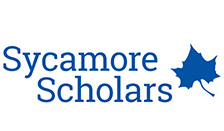Abstract
Context: In 2010, the National Collegiate Athletic Association (NCAA) introduced a proposal addressing sickle cell trait screening. This proposal later became a policy that required student-athletes in their first year of eligibility to provide their institution with accurate information regarding their sickle cell trait status. There does not appear to be a recent study published that has examined the sickle cell trait screening policy and procedures currently being used by NCAA Division III Institutions. Thus, the purpose of this study was to describe the characteristics of sickle cell trait policies and procedures at NCAA Division III institutions. Methods: We used a web-based survey (Qualtrics, Qualtrics Inc., Provo, UT) that was distributed to the 442 NCAA Division III Head Athletic Trainers . A total of 158 athletic trainers accessed and completed the survey (response and completion rate=35.7%). The survey tool included questions to assess the availability of sickle cell trait testing, availability of sickle cell trait waivers, and policy and procedure revision processes. After the collection window had closed, we calculated frequencies of participant responses using a commercially-available statistics package (SPSS Version 26, IBM, Armonk, NY). Results: The majority of head athletic trainers reported that their institutions did not require sickle cell trait testing (70.25%, n=111). The majority of head athletic trainers also stated that their institutions offered sickle cell trait testing to their student-athletes in some form (institution’s expense=119, individual’s expense=13). Additionally, a slight majority of institutions required all student-athletes to undergo yearly sickle cell trait education (56.33%, n=89). On average, institutions (79%) and team physicians (56.7%) reviewed sickle cell trait policies and procedures on a yearly basis. However, 18.9% (n=30) of institutions did not have sickle cell trait policies and procedures that had been reviewed by their team physicians at any point. When asked whether sickle cell trait and sickle cell disease were different conditions, 8 head athletic trainers (5%) stated they were not. Conclusions: While the majority of responding NCAA Division III institutions appear to be at least compliant with NCAA regulations, athletic training staff and institutions should be encouraged to conduct annual reviews of their sickle cell trait screening policies and procedures with athletic training staff, the team physician, institutional legal counsel and institutional risk management. Athletic trainers should ensure that they are well versed in the pathology, recognition and management of patients with sickle cell trait. Also, institutions should require annual sickle cell trait education for student-athletes, regardless of SCT status.
Recommended Citation
Eilers, M A.; Warner, B J.; Gallegos, D M.; Clark, J A.; and Cage, S A.
(2022)
"Characteristics of Sickle Cell Trait Policies and Procedures at NCAA Division III Institutions,"
Clinical Practice in Athletic Training: Vol. 5:
Iss.
3, Article 8.
Available at:
https://scholars.indianastate.edu/clinat/vol5/iss3/8
Included in
Biological Phenomena, Cell Phenomena, and Immunity Commons, Cognition and Perception Commons, Physiology Commons

